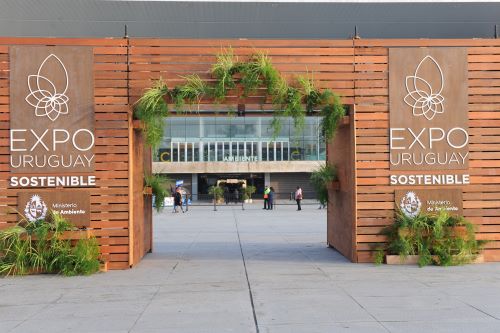Uruguay stands out in the region as an attractive and safe destination for international investors. The country offers several advantages, such as a free exchange market with no restrictions on capital inflows and outflows, transfers of profits, dividends, interest, etc.
No local counterparty is required to invest. In addition, Uruguay has a uniform tax system throughout its territory, based on the principle of territorial income, which means that, in general, income generated abroad and assets located outside the country are not taxed. There is also no discrimination between domestic and foreign investments.
Contáctanos para más información
What are the advantages and why is it essential to understand them when investing in Uruguay?
Understanding the benefits of investing in Uruguay is crucial for both domestic and international investors seeking to start activities in the country, under the guidelines of Law 16.906. This law allows for significant tax exemptions, ranging from 30% to 100% of the total investment, applicable for a period of 4 to 25 years.
Law 16.906, known as the “Investment Law”, together with Decrees 143/018 and 268/020, provides tax incentives to companies subject to Income Tax on Economic Activities (IRAE) that invest in Uruguay.
The objective of this legislation is to foster economic development and create a positive impact on the value added of the Uruguayan economy.
Approval to receive these benefits can be focused on a specific sectoral activity, defined as a set of projects aimed at producing, marketing or providing certain goods or services. Specific objectives are defined and evaluated with a scoring system from 0 to 10, according to criteria established in a corresponding table.
The following investment categories are accepted:
Movable tangible assets used directly in the operations of the company. These must represent a minimum cumulative value of 500 Indexed Units (IU). It does not include personal property for household use or certain types of vehicles not intended for utilitarian purposes.
Investments in construction and permanent improvements in properties. In case the improvements are made on leased properties, it is necessary that, at the time the application is submitted, there is a lease agreement in force for a minimum of three years.
For afforestation investments, both the purchase of seedlings and the costs associated with the planting and maintenance of fruit trees and perennial shrubs are considered.
What taxes are exempted in an approved investment project?
- Exemption from Income Tax on Economic Activities (IRAE).
- Wealth Tax (IP) exemption.
- Reimbursement of the Value Added Tax (VAT) applied.
- Exemption of duties and taxes on the importation of goods.
Companies may enjoy tax exemptions on investments made since the tax year in which the project is presented, provided that they have generated a net taxable income.
With the entry into force of Decree No. 268/020, the benefits have been extended:
- The minimum exemption was increased from 20% to 30% of the eligible investment.
- The possibility of evaluation by means of a simplified matrix based on employment generation was introduced.
- The minimum exemption period was extended from 3 to 4 fiscal years.
- The hours requirement to consider employment was decreased from 40 to 30 hours per week.
- The weighting of the Employment Generation and Increase in Exports indicators was increased.
- The exempted IRAE can be up to 90% of the tax payable.
- Small companies can obtain an additional 10% benefit on the IRAE.
What is the duration of the approval process?
After the submission of the project, there is an initial period of 90 working days for the authorities to issue a resolution declaring the project as promoted. This period may be paused if more information is required from the company, although this pause may not exceed 90 business days.
Once this period has elapsed without a resolution, the recommendation for the Executive Branch to grant the benefits will be deemed to have been made.
The effective implementation of the projects and compliance with the commitments made by the beneficiaries are monitored. This review can be performed at any stage of project development and operation. If during the follow-up it is detected that the beneficiaries have not complied with their obligations, the taxes that had been exempted will be readjusted.
Contáctanos para más información
Links of interest:











